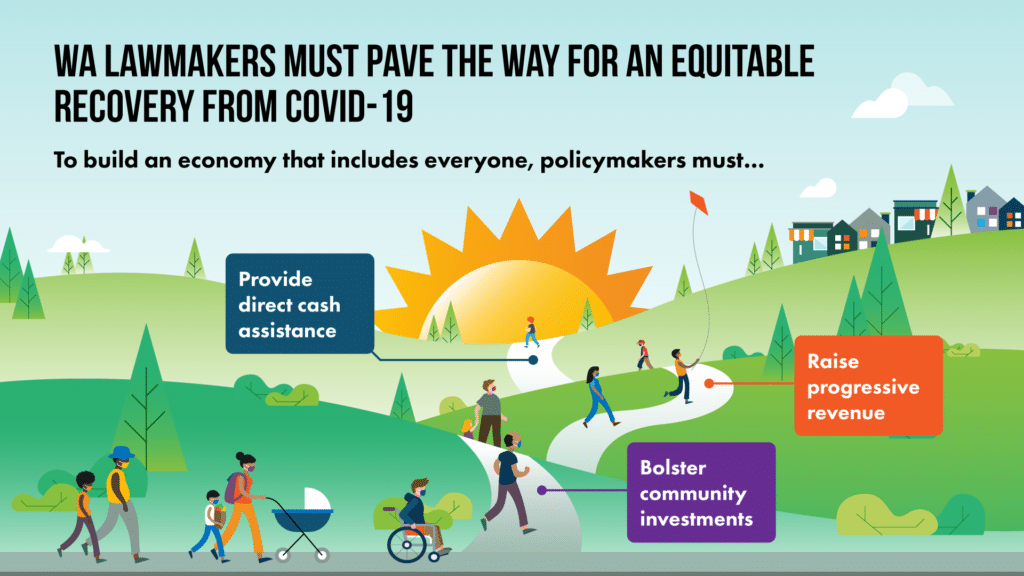The emergence of COVID-19 underscores the important role public investments play in maintaining healthy communities. It also brings to light how decades of inadequate public investments and racism have left Black, Indigenous, and other people of color (BIPOC) enduring the greatest losses – despite policy changes won through years of resistance and organizing by communities.
Our new brief, “Investments today can lead to better health tomorrow,” outlines a policy agenda for responding to COVID-19. Policymakers can create a healthier, more equitable state by raising progressive revenue and investing in community well-being as part of their response to COVID-19. Budget and policy decisions that lift and keep people out of poverty are also health policies – and these investments are even more critical during the public health and economic crises.
Our new brief, “Investments today can lead to better health tomorrow,” outlines our state policy recommendations for a COVID-19 recovery that supports the health and well-being of communities.
During the Great Recession, Washington state lawmakers made the harmful decision to cut more than $10 billion from foundational public services like public health, economic security programs, and education rather than raising significant progressive revenue for community investments. This knee-jerk cuts approach harmed the health and well-being of thousands across the state. Lawmakers now find themselves at a similar crossroads as Washington faces a $4.5 billion revenue shortfall for the current biennium. However, there is enough wealth in our state to sustain and strengthen the public investments that keep us all well.
To move out of this crisis, policymakers must bolster public investments that support well-being, provide cash assistance directly to people, and raise progressive revenue for these investments. Doing so will support the health and well-being of people in Washington throughout the COVID-19 crisis and beyond.
Support for this brief was provided by the Robert Wood Johnson Foundation. The views expressed here do not necessarily reflect the views of the Foundation.

